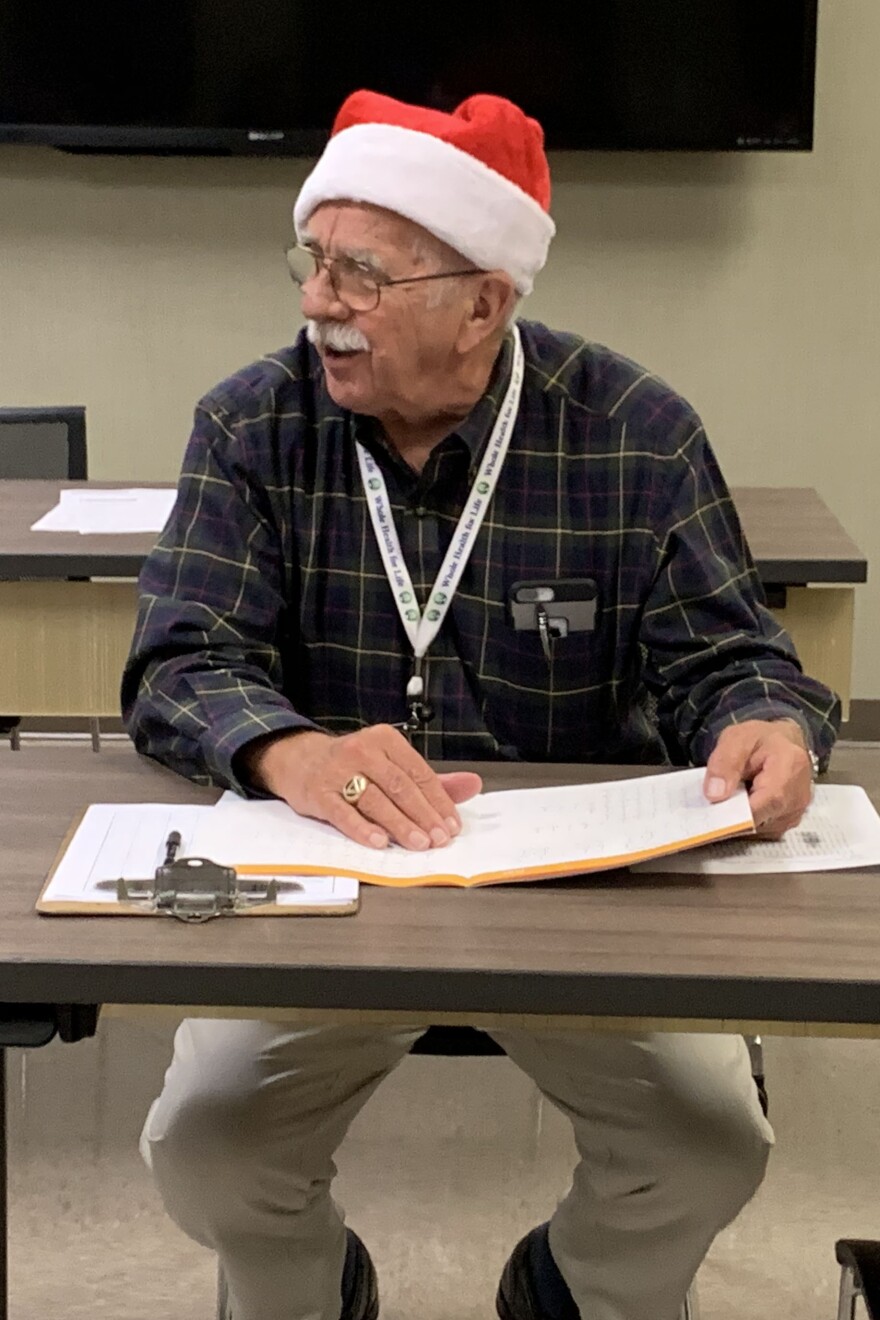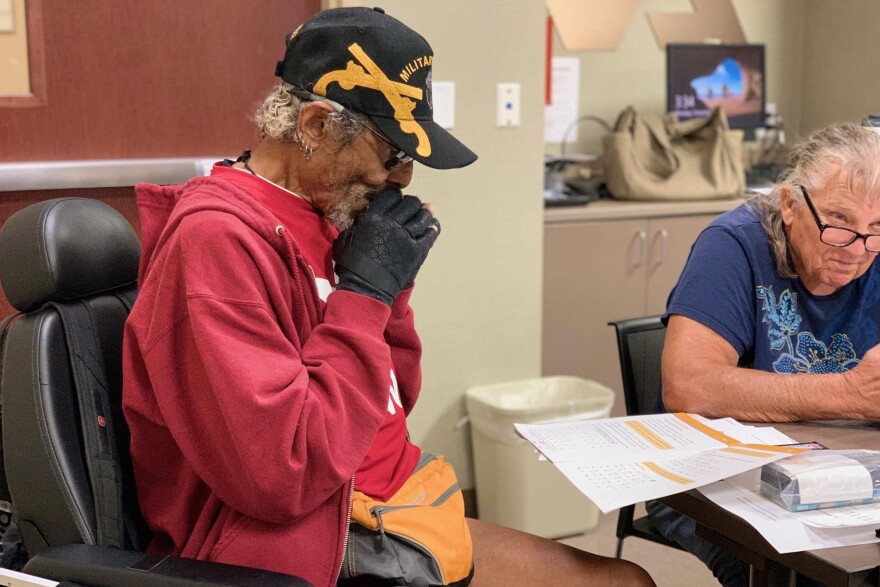Some Florida veterans are putting on a holiday performance at their local VA, but not just to spread cheer. It’s part of a program that uses harmonicas to help treat COPD.
On a recent afternoon, a dozen or so veterans sat around a table at the James A. Haley Veterans' Hospital in Tampa preparing for a musical performance.
They all had small silver harmonicas that they used to play simple renditions of holiday classics - Jingle Bells, Silent Night, and Joy to the World. Those are among the songs they planned to play at a concert for their families, hospital staff, and patients.
Marine Corps veteran Yoel Alvarez, 68, got a little off-track during Silent Night and had to stop to catch his breath.
"That's about it. I can't inhale too much," he told the group.

Besides military service, participants in the class all share another thing in common. They have Chronic Obstructive Pulmonary Disease or COPD. The condition is commonly caused by smoking or exposure to pollution. Breathing is tough for them. They may constantly cough or wheeze and feel dizzy when they're active.
This class, part of the COPD Foundation's program Harmonicas For Health, teaches them techniques to strengthen the muscles around their lungs and improve their breathing.
Instructor Dave Folds is the Tampa VA Hospital's Health Promotion-Disease Prevention Program Coordinator. He said the small holes of a harmonica require players to breathe with pursed lips, similar to blowing through a straw. That mimics a common exercise doctors recommend for patients with COPD.
"We do that with an instrument that makes noises and makes music, and they feel the accomplishment," Folds said. "And I can't tell you how many tell me they'll sit at home and play the harmonica but they will not sit at home and purse lip breathe for fifteen minutes."
Every week, Folds asks class members to go around the room and share if the experience is helping them.
Marine Corps Veteran Yoel Alvarez, 68, said he's noticed a difference from playing the harmonica. Since developing COPD, breathing in has been his biggest challenge. He said he struggled with the instrument early on, especially for songs that required a lot of intakes, which would force him to stop playing as he gasped for air.
"I'd have to slow down and take my breath again and start all over," he said. "Now I have it under control."
Olaf Olson, 77, said he has been able to clear his lungs more easily, and he has more stamina when he bikes around town. The former military police officer said he takes his harmonica with him everywhere he goes, even if he doesn't have time for a tune.
"I'll sit down some place that's comfortable and just make sounds, just make noises, just breathe, any type of breathing," Olson said, before demonstrating on the harmonica. He played a quick series of notes, explaining how that exercise forces him to use his diaphragm to stay winded.
Folds said when the class first started earlier this year, it had only three participants. More recently, there have been as many as 16. The hospital has expanded the program to include a class at its outpatient clinic in New Port Richey, Fla., and it's working to add more classes elsewhere.
The COPD Foundation, in partnership with the Academy of Country Music, provides participating organizations nationwide with harmonicas, music books, and literature on COPD. Students are expected to attend classes weekly for about three months and practice at home throughout.

The physical benefits aren't the only thing bringing veterans back to class each week. The social aspects help many patients as well.
The class encourages veterans to let their guards down and open up to one another. Participants share their challenges with COPD each week, but they also share their accomplishments. And anytime one of the veterans attempts a solo, the others cheer.
Olson volunteered to play Jingle Bells on his own, and after making it through the tune with almost no errors, the room erupted in applause and whistles.
That sense of community is half the benefit of the class for Alvarez.
"I like it, it's getting together with other vets, because basically I'm almost like a shut-in," Alvarez said. "This has gotten me to do things outside of my comfort zone."
That's especially the case this holiday season when they'll perform two concerts in the hospital lobby, one featuring patriotic songs for a military celebration and another with the Christmas songs they've been practicing.
If their rehearsals are any indication, the vets may not nail every note perfectly.
But Folds said it doesn't matter. As long as they're working on their breathing, it's a job well done.
This story was produced by the American Homefront Project, a public media collaboration that reports on American military life and veterans. Funding comes from the Corporation for Public Broadcasting.





